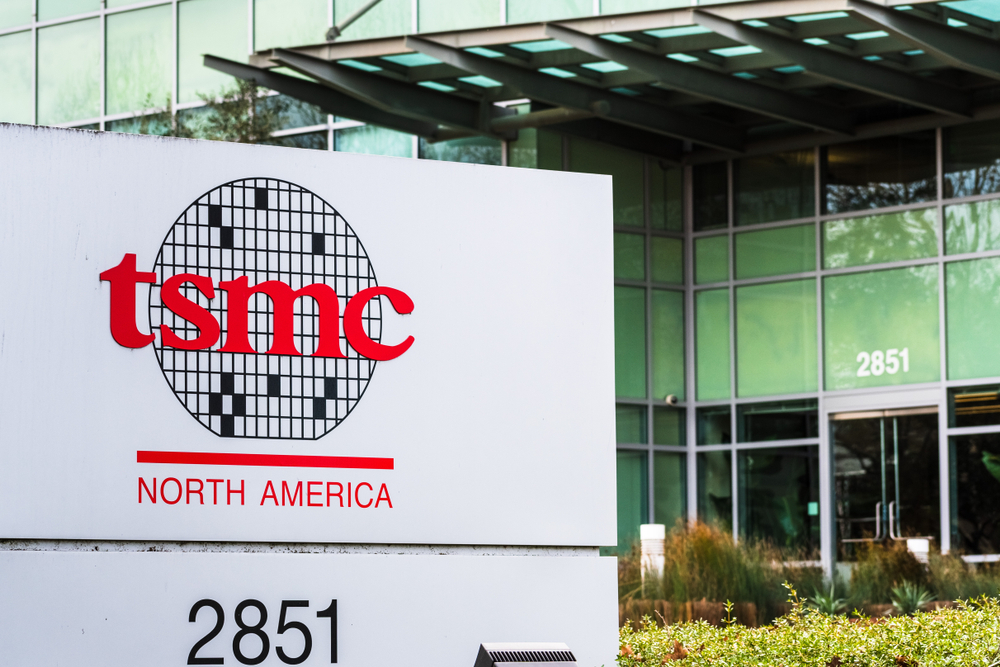Report: TSMC, Foxconn Among Potential Arm Buyers

According to a report from Nikkei Asian Review today, Softbank has reached out to both TSMC and Foxconn regarding a potential acquisition of Arm.
SoftBank Group bought Arm four years ago for a total of $32 billion (€26.9 billion). Foxconn and TSMC are one of several companies that Softbank's bankers have contacted about selling the chip designed, according to Nikkei, which cited "people familiar with he discussions." Nikkei also reported that TSMC and Foxconn were all given a selection of financial data, as well as projection models directly from Arm. Nvidia also reportedly received this information.
Both Apple and Qualcomm have also been included in the pool of potential buyers, Nikkei's sources claimed.
- Best gaming CPUs of 2020
- Best graphics cards of 2020
The report comes on the heels of recent reports highlighting Nvidia's serious inquiry of purchasing.
While TSMC and Foxconn are reportedly still considering the investment, Nvidia is said to be approaching the offer with serious talks that may involve a complete purchase of Arm, rather than a share
Arm co-founder Hermann Hauser recently spoke out against Nvidia's acquiring Arm.
Get Tom's Hardware's best news and in-depth reviews, straight to your inbox.

Ash Hill is a contributing writer for Tom's Hardware with a wealth of experience in the hobby electronics, 3D printing and PCs. She manages the Pi projects of the month and much of our daily Raspberry Pi reporting while also finding the best coupons and deals on all tech.
-
Chung Leong An acquisition by TSMC seems like a complete non-starter. Little chance of winning regulatory approval in South Korea. Foxconn, meanwhile, doesn't bring much to the table in terms of synergy.Reply -
HyperMatrix ReplyChung Leong said:An acquisition by TSMC seems like a complete non-starter. Little chance of winning regulatory approval in South Korea. Foxconn, meanwhile, doesn't bring much to the table in terms of synergy.
Why would they need regulatory approval from South Korea? Arm is British. TSMC is Taiwanese. And SoftBank is Japanese. -
watzupken TSMC is definitely the best choice here, as compared to the likes of Apple, Nvidia, etc. There may still be some potential issue where TSMC may have an unfair advantage other foundry businesses if they own ARM.Reply -
Chung Leong ReplyHyperMatrix said:Why would they need regulatory approval from South Korea? Arm is British. TSMC is Taiwanese. And SoftBank is Japanese.
Seriously, I don't where people get this idea that foreign ownership grants immunity from local laws. Anyone who reads the news knows this isn't true. It wasn't long ago when China torpedoed Qualcomm's attempt to buy NXP. If the Chinese feel like it, they can torpedo this deal too. -
DZIrl Let's shut ARM down and see what will happen.Reply
Or even better, SoftBank should start learn from SCO and start charging Qualcomm and Apple billions. This will be interesting how Mac will switch immediately back to x86. -
HyperMatrix ReplyChung Leong said:Seriously, I don't where people get this idea that foreign ownership grants immunity from local laws. Anyone who reads the news knows this isn't true. It wasn't long ago when China torpedoed Qualcomm's attempt to buy NXP. If the Chinese feel like it, they can torpedo this deal too.
I asked a question, which was why they would need regulatory approval from South Korea? You made some obscure comment about local laws. Ok let's say South Korea creates a domestic law in their country that says "We, South Korea, will not allow a British company to sell its assets to a Taiwanese company." Why would those companies, and those countries, have any reason at all to care what South Korea says about this matter?
Regarding your Qualcomm/NXP comments, this is what I found:
"China didn't outright block Qualcomm from acquiring NXP. But the two had set today as a deadline for the merger—and they needed approval from Chinese antitrust authorities, since each company does significant business in China. "
So China threatened to cut off NXP/Qualcomm from doing business in China, and un-informally killed the merger. However, ARM has much broader reach, as does TSMC. And if South Korea were to block them from operating in their country, they would have to shut down their own chip manufacturing, including Samsung's Exynos chips which also run on IP from ARM. -
Chung Leong ReplyHyperMatrix said:I asked a question, which was why they would need regulatory approval from South Korea?
Well, you pretty much answered your own question. TSMC does significant business in South Korea and needs to operate in accordance with South Korean anti-trust laws. A company can't go rogue and pursue a deal despite objections of regulators. It's not a question of what retributive measures the country can mend out. The scenario is impossible since no investment bank would want anything to do with it. -
HyperMatrix ReplyChung Leong said:Well, you pretty much answered your own question. TSMC does significant business in South Korea and needs to operate in accordance with South Korean anti-trust laws. A company can't go rogue and pursue a deal despite objections of regulators. It's not a question of what retributive measures the country can mend out. The scenario is impossible since no investment bank would want anything to do with it.
If TSMC and ARM were one and the same, South Korea couldn’t afford to stop doing business with it. It would have to shut down its own fabs. It comes down to who can apply the most pressure. And South Korea is in absolutely no position to stop doing business with the worlds largest fab, for example, because that would mean it’d have to ban the sales of most electronic devices, including android, Apple, Microsoft, Nvidia, AMD, etc etc. and it would also have to stop its own companies like Samsung which have their own fab, but are using ARM licenses in their chips.
South Korea is far too insignificant to be able to prevent TSMC from acquiring ARM, and it’d only shoot itself in the foot, especially since their own tech export businesses rely heavily on both TSMC and ARM to stay competitive globally.